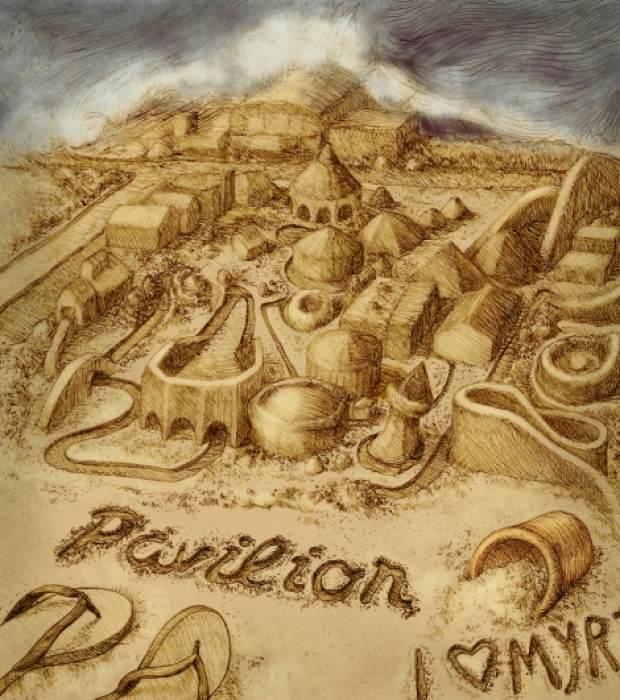
When I was a boy, each August my parents would load up the family station wagon du jour, hook the tent camper to the hitch and head to Myrtle Beach. We’d rise at 4 a.m. to begin the 16-hour drive from Rochester, New York, stopping only at rest areas to use the bathroom and walk the beagle, often eating Mom’s prepared food right in the car. (“Car-nics,” my father dubbed them). South of the Border signage led us down the journey’s final stretch in a breathless, 200-mile countdown like a yellow-brick road to my personal Emerald City, The Ponderosa Campground.
I moved here permanently in 1996, directly from overseas and mispronounced Horry (“Whorey!”) at a speech to a Rotary Club. I can only hope that now, all these years later, I have been forgiven (though any political ambitions may be out of the question). I have raised two children here, watched them promote through the school systems; I’ve made friends, joined a church, bought and sold property, joined a golf club, started several businesses—in short, I’ve made it my home.
To understand Myrtle Beach, one must bear in mind that less than a century has passed since it was carved out of swamps and thickets of wax myrtle, from which it gets its name. If everyone left tomorrow, in less than a decade it would all be returned to the swamps and the thickets. I love that. We have no natural port; no fortuitous railway junction; 57 years after Eisenhower’s Highway Act, we still have no interstate to our beaches. In fact, our only natural resource is our beach. All the rest of it, the overhead shark tanks, the chainsaw-killer haunted houses, the go-kart tracks, the wax museums, the $12 hamburgers, the musical theaters and the thousands of irrigated acres of fairway—all of these are human inventions, carved out of nothing with only the sharp chisel of imagination and will. Tacky? You bet! To me it screams of capitalism at its best, opportunity, dreams realized, and, yes, I don’t think it’s overstating it: Freedom. I’ve lived in Russia, and I can tell you with certainty, Myrtle Beach could not exist there.
Important to me as a relative newcomer, the Grand Strand has welcomed me and my family. My last name is not on an overpass, but no one really seems to care. Instead of questioning whether or not I belong here, the people of Myrtle Beach seem thrilled that I have chosen to settle here. I have been invited to speak at countless clubs. My accomplishments are covered in the press. And while my status as a writer may have helped somewhat, my experience is far from unique. In recent years the area has become a melting pot of Northerners, Southerners and Hispanics. Carolina Forest is practically a Yankee diaspora.
Ironically I am most often reminded of Myrtle Beach’s special magic when I am outside the area. As I write this, I’m in Las Vegas on business. I mentioned to a preoccupied stranger beside me that I live in Myrtle Beach. His eyes lit up, and he proceeded to tell me about a golf vacation he once took here. Suddenly talkative, we discussed golf courses he’d played, restaurants he’d dined at and stores he’d shopped in. He wanted to know about the Pavilion, and was incredulous that it had been razed. It’s a common reaction, one that makes me smile. I covered the fall of the Soviet Union, but it’s about Myrtle Beach they want to hear.
It’s true, I feel special to live here. And maybe that’s why I smiled at the stranger’s delight. For though I’ve called Myrtle Beach home for a decade and a half, at some level, this place will always hold a wisp of that boyhood magic for me.
At least I hope so.
----------------------------------------------------
Michael Hetzer is the author of the thriller novel, The Forbidden Zone, published by Simon & Schuster. He is also the founding editor of the first-ever daily newspaper in Russia, The Moscow Times. He lives in Myrtle Beach with his wife, Tamara, and two children, Stephanie and Conrad.